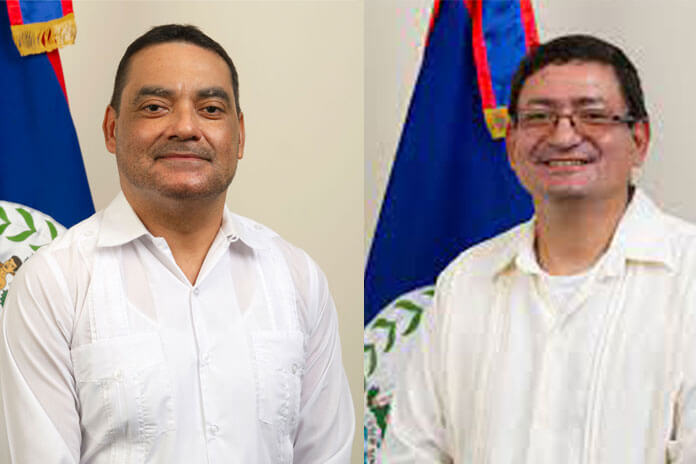BELIZE CITY, Wed. Aug. 11, 2021– According to Minister of Education, Hon. Francis Fonseca and Minister of State in the Ministry of Education, Hon. Dr. Louis Zabaneh, a major education reform is on the way, and it will include an overhaul of the curriculum at Belize’s primary schools/high schools and an end to the yearly PSE exam. Both Minister Fonseca and Dr. Zabaneh have spoken with various media outlets this week to provide details on the changes that will be undertaken.
Hon. Fonseca has confirmed that students this year will once again not be sitting the PSE or BJAT exams. He stated that these tests have become dated, and that more “creative” models of testing need to be introduced. He even stated, in reference to the PSE exam in particular, that he hopes that the exam will not make a return in the future, since the Ministry has been working on a complete curriculum reform.
Dr. Zabaneh, when he spoke to local journalists, actually indicated that the focus on the PSE and BJAT exams and the pressure applied on students during the process of preparing for these exams, might have impaired the learning that took place, instead of enhancing it. He explained that such a singular focus on exam results prevented educators and education officials from getting a more holistic view of how well students have grasped the materials presented to them during primary school. PSE results were not providing a full view of how prepared students are for higher education, and have been creating a warped perspective in students, who become fixated on their performance in these exams, rather than on acquiring the skills and insights they will need to be productive in the workplace — which is not always reflected in standardized tests. So the answer, says Dr. Zabaneh, is to introduce other types of testing throughout the curriculum to provide a more expansive view of students’ progress. Those students will therefore not be “cramming” in preparation for one major exam at the end of their educational journeys.
The new modes of national testing are just one part of the overhaul that the Ministry of Education will be carrying out, however. The curriculum itself that is being taught at primary schools and secondary schools is being reviewed, and streamlined. Focus will be directed to specific subjects and outcomes, and those subject areas and outcomes that the Education Ministry classifies as redundant or unnecessary will be stripped away. As a result, at the high school level, the number of subjects being taught might be reduced from 12-14 subjects, to 10, and the number of subjects taught in primary schools will similarly be cut — to about nine subjects.
This reform is apparently already in the consultation phase and could be rolled out as early as this year. The Minister of Education provided a more detailed explanation of the process that’s being undertaken:
“It’s a critically important issue. It’s something that we believe is absolutely essential to education reform in general. We’ve heard for a very, very long time this discussion about curriculum overload; you’ve heard it from students, you’ve heard it from teachers. And also, the relevance of many of the learning outcomes that are on the curriculum. So, we’ve engaged for several months in an exercise reviewing the curriculum – extensive consultations with all the relevant stakeholders. So, what we’re doing now is piloting a new curriculum to primary school and secondary school which will see learning outcomes reduced by over a thousand. Currently the existing curriculum has about almost two thousand seven hundred learning outcomes, meaning specific outcomes that are to be achieved. So, we’ve streamlined that in a very targeted focus way down to about fifteen hundred to sixteen hundred specific learning outcomes. In terms of actual subject areas at the primary level it ranged from twelve subjects to fourteen subjects depending on the school you attended. We’ve now brought that down to nine subjects. And have a much more targeted approach. At the secondary level we’re doing the same thing. Again, you were dealing with twelve or fourteen subjects. We’ve streamlined that down to ten core subject areas and made sure that we streamlined as well the learning outcomes, so that this overload that we’ve talked about for years and years, we’re finally addressing it,” he said.

